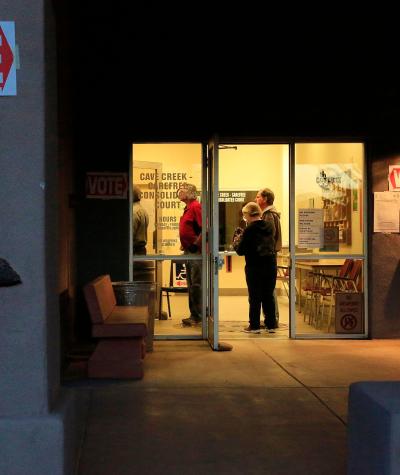Campaign Legal Center (CLC) and Barton Mendez Soto PLLC filed a lawsuit in federal court on behalf of Living United for Change in Arizona (LUCHA), League of United Latin American Citizens (LULAC), Arizona Students’ Association (ASA) and the Arizona Democracy Resource Center (ADRC) challenging H.B. 2492, an anti-voter law which undermines the freedom to vote in Arizona.
H.B. 2492, which Arizona Gov. Doug Ducey signed into law earlier this week, denies Arizonans the right to vote based on the form they use to register and whether they can obtain, copy and submit paperwork that proves their U.S. citizenship status.
It also prohibits voters who do not submit that paperwork from voting early or by mail and prevents them from voting in presidential elections at all.
The lawsuit, filed by CLC and its partners on March 31, 2022, alleges that H.B. 2492’s anti-voter provisions violate federal law.
The law’s new registration requirements discriminate against voters such as college and university students, married people who change their name and naturalized citizens, creating unnecessary barriers that prevent them from freely exercising their right to vote.
The lawsuit also alleges that H.B. 2492 targets naturalized citizens. The law requires voters to disclose their place of their birth when they register to vote — a fact that is irrelevant to voter eligibility.
It also requires election officials to reject voter registration applications based on unreliable and outdated citizenship data, which will disproportionately burden naturalized citizens and subject them to potential criminal investigation and prosecution.
Arizonans must already attest to their citizenship and residence under penalty of perjury when they register to vote. Federal law prohibits states from requiring additional documentary proof of citizenship or residence to register for federal elections.
In 2018, CLC represented LULAC and ASA in a lawsuit against Arizona over its “dual registration system.” This lawsuit alleged that Arizona election officials were registering voters for federal elections based solely on whether the voter submitted a state-issued registration form or a federal registration form.
The lawsuit resulted in a consent decree, which required election officials to register voters who did not provide documentary proof of U.S. citizenship for federal elections, regardless of which form they used.
It also mandated that election officials compare the information a voter used to register against the state driver’s license database to determine whether the state already had proof of U.S. citizenship on file before preventing the voter from registering for state elections.
H.B. 2492 reverts Arizona back to the old system, which conditions the ability to vote on the form a voter used.
The anti-voter policies in H.B. 2492 create new barriers to Arizonans’ freedom to vote and violate longstanding federal law. Voters should be able to cast their ballots freely, safely and equally to make the promise of democracy real for all Arizonans.
